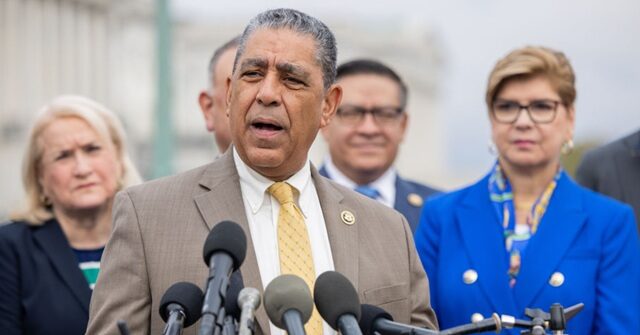On a recent episode of “CNN News Central,” Rep. Adriano Espaillat (D-NY), who will soon chair the Congressional Hispanic Caucus, articulated his strong belief in the importance of birthright citizenship as a core principle of American identity. Espaillat underscored that this principle is not only a feature of U.S. law but is also deeply woven into the fabric of American history. He emphasized the necessity for this concept to remain intact, asserting that it serves as a foundational element of the nation’s values and legal framework.
During the discussion, Espaillat pointed out the constitutional safeguards that protect birthright citizenship, noting that any attempt to amend this would face a rigorous legislative process. Changing the Constitution requires a two-thirds majority approval in both houses of Congress and subsequent ratification by three-quarters of the state legislatures. He expressed doubts about whether the current administration has the requisite political support to navigate this complex and demanding process, suggesting that discussions around constitutional amendments are far from straightforward and would likely struggle due to the present political climate.
Co-host John Berman inquired if Espaillat and his colleagues would take a stand against any attempt to alter birthright citizenship. In his response, Espaillat affirmed their commitment to opposing such efforts. He reiterated the significance of birthright citizenship, stating that it has long been a central tenet of America’s identity, and that any threats to it would be met with robust resistance. This forthright stance highlights the readiness of Congressional Hispanic Caucus members to engage actively in safeguarding civil rights.
Espaillat also expressed a willingness to collaborate with the administration on issues that impact vulnerable populations, such as DREAMers—young immigrants who were brought to the U.S. as children—and seasonal farmworkers. He indicated that while there are areas of contention, particularly regarding birthright citizenship, there remains potential for bipartisan dialogue on other critical topics. This suggests a broader approach to immigration policy that balances advocacy for citizenship rights while addressing the needs of different immigrant groups.
The discussion reflects the ongoing national discourse surrounding immigration and citizenship rights, which has intensified in recent years. Espaillat’s comments underscore the complexities of these issues, revealing not only political divisions but also highlighting the values and principles that many lawmakers believe should prevail. The debate over birthright citizenship encapsulates larger themes of inclusion and American identity, showing the interplay between legal frameworks and societal values.
As the Congressional Hispanic Caucus prepares to advance its agenda under Espaillat’s leadership, it is clear that the fight to protect fundamental citizenship rights will remain a priority. The determination expressed by Espaillat serves as a call to action for advocates and lawmakers alike, emphasizing the need to uphold principles that have defined the nation’s character. The impending discussions about immigration reform and citizenship will require careful navigation of political dynamics, but the unyielding stance for birthright citizenship signifies a broader commitment to uphold democracy and civil rights in America.

